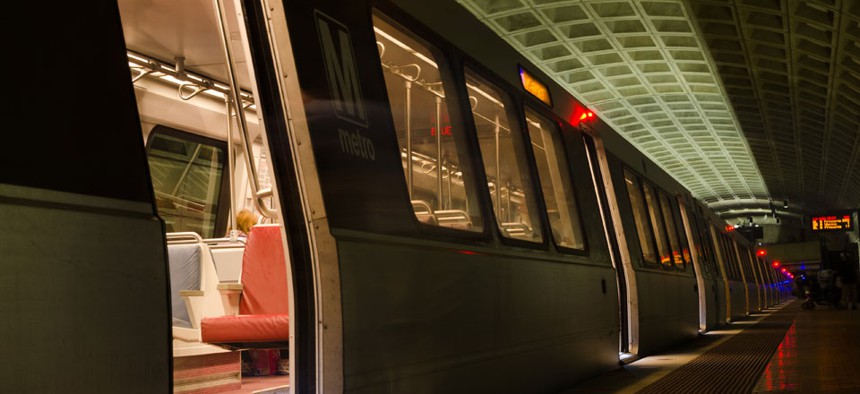
Orhan Cam/Shutterstock.com
Mass Transit Benefit Will Drop In 2014
The pre-tax cap on the monthly perk will fall $115, while the maximum parking benefit will increase $5.
The mass transit tax benefit used by thousands of federal employees will drop significantly in 2014, while the maximum parking benefit will increase by $5.
Beginning on Jan. 1, 2014, commuters will be able to use up to $130 in monthly pre-tax dollars to subsidize their mass transit costs -- $115 less than the current maximum of $245 per month. The parking benefit will increase to $250 per month next year, up from the current $245 cap. Something similar happened in 2012, when the cap on the mass transit benefit was $125 per month, and the limit on the parking benefit was $240 per month.
The upcoming changes are a result of the 2012 American Taxpayer Relief Act, also known as the fiscal cliff deal. That law restored parity between the mass transit and parking benefits, but only for 2013. The mass transit increase for 2013 was temporary, which is why the cap will be smaller in 2014; the change for the monthly parking limit is a permanent provision in the law so the annual cost-of-living adjustment will boost the maximum benefit to $250 per month next year.
Congress would have to pass legislation to change the 2014 mass transit cap of $130 starting in January.
The change affects all commuters, not just federal employees. Employers who offer the tax benefit, including the federal government, do not dole out the benefits equally. Just as feds use a variety of transportation modes to get to work -- including car, rail, vanpool, ferry and bus -- agencies allocate transit and parking benefits slightly differently. And perhaps most important, the value of a mass transit subsidy directly correlates to the reliability and availability of public transportation in a particular area. As for parking perks, when an agency offers them, it typically comes down to supply and demand.
Agencies currently can provide up to $245 per month in transit benefits, which include subsidies for public transportation and parking, but not everyone receives the maximum amount, or even a full menu of options. Employees are eligible to receive a tax-free transit subsidy that is equal to, but must not exceed, the amount they spend on their commute; if they don’t use the full amount in any given month, the surplus flows back to the government. And an individual cannot receive both a transit and parking subsidy.
The Transportation Department, through its TRANServe program, offers guidance on how the mass transit benefit works, while the Internal Revenue Service handles tax regulations. As long as agencies adhere to the maximum monthly cap, stay on the right side of the IRS and ensure employees don’t misuse the subsidy, they retain a fair amount of flexibility in how they allocate the benefit.
(Image via Orhan Cam/Shutterstock.com)
NEXT STORY: 2014 Military Pay Raise Guaranteed







